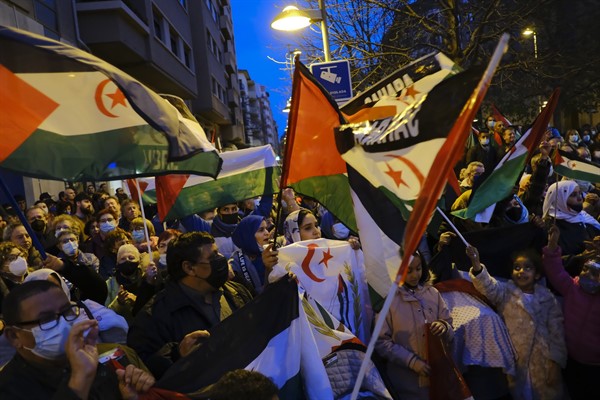In mid-March, Spanish Prime Minister Pedro Sanchez sent a letter to Moroccan King Mohamed VI, supporting Rabat’s plan to grant Western Sahara autonomy over its internal affairs, while remaining under Moroccan sovereignty. The move appeared to be an abrupt departure for Spain, which has maintained a position of careful neutrality over its former colony’s efforts to gain independence from Morocco for nearly 47 years.
When the Moroccan Foreign Ministry eventually made Sanchez’s support public, it provoked an uproar in Spain centered around two primary questions. First, Does this really constitute a major policy change for Spain, given that it has never explicitly ruled out the Moroccan autonomy plan first floated in 2007. Second, Why now, at a time when most European countries are scrambling to secure alternatives to Russian natural gas supplies? The move angered Algeria, which has long backed Western Sahara’s independence movement, the Polisario Front, and is Spain’s biggest supplier of natural gas.
Spain has carefully avoided taking a side in the conflict for decades. The territorial dispute dates back to 1976, when Spain ended its colonial rule over Western Sahara and Morocco stepped in to claim the territory, which is rich in phosphate reserves and controls lucrative fishing waters. Since then, Morocco’s occupation of Western Sahara has been marked by intermittent conflict with the Polisario Front, which continues to fight for an independent state. In 1991, the United Nations brokered a cease-fire and passed a resolution calling for a future referendum on self-determination for the indigenous Sahrawi people to complete the process of decolonization. That hasn’t happened yet, and a recent uptick in violence in the territory has raised concerns of a return to full-fledged conflict.

